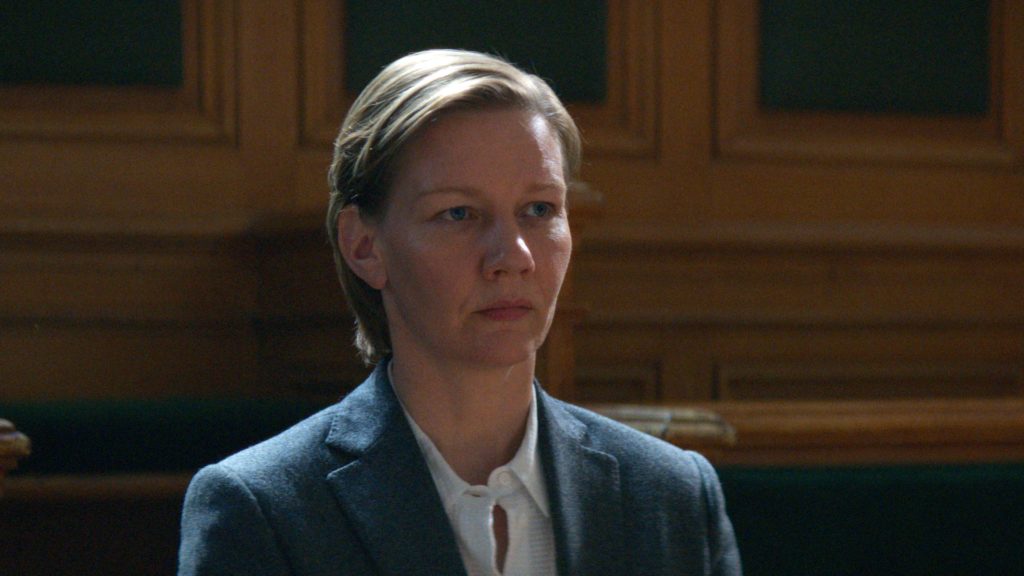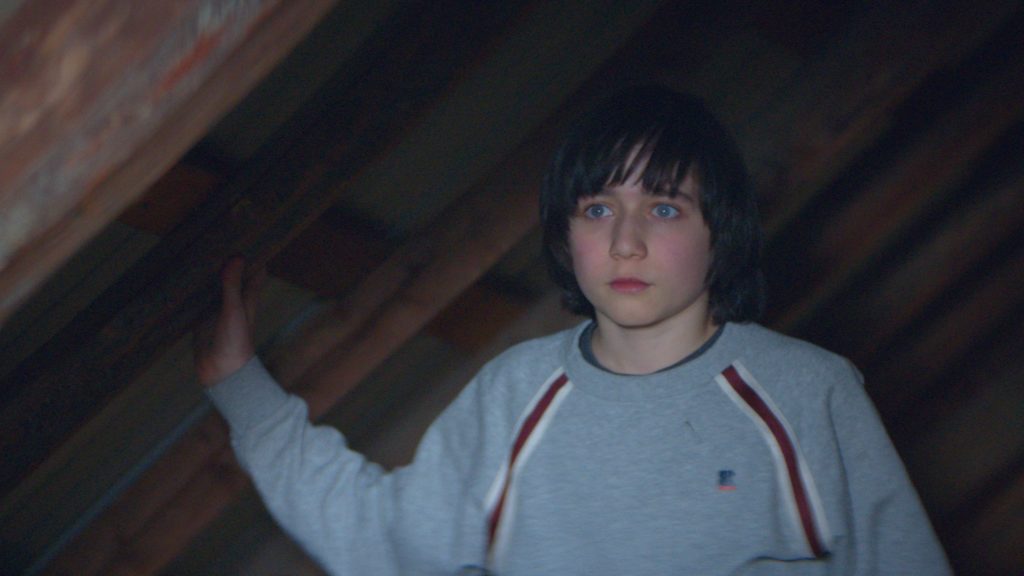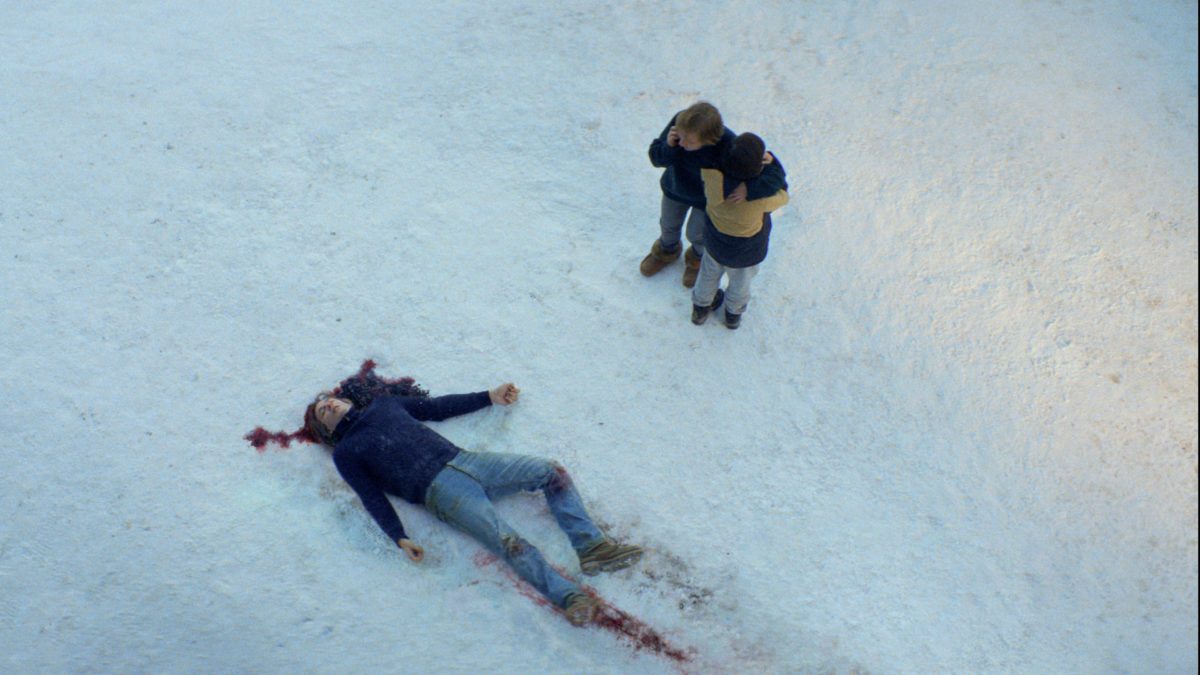I don't know what you heard about me
Anatomy of a Fall’s script offers a rich landscape of ideas intelligently explored. One of its central points is that the true version of ourselves is the one we decide to believe in and present to the world around us. It is less concerned with whether Sandra (Sandra Hüller) pushed her husband Samuel (Samuel Theis) off a balcony than it is about what the investigation of that question reveals about the couple and their lives. This makes the film a psychologically probing character drama first and a procedural second, though it operates exactly as a procedural would: extensive, level-headed discussions about the details of a crime to try and cut to the truth. However, the truth the film seeks is not an objective guilt or innocence proclamation, but a better understanding of the human soul. The movie deconstructs the inner clockwork of its protagonists as a cross-section of sexuality, class, language, dreams, regret, and family bonds. What’s more, the French justice system’s means of stripping down each of those elements, by its very nature, reduces and demeans that which makes us human.
Also there’s a dog named Snoop, and he’s a good boy.

The film opens with a phenomenal scene that is disorienting in the moment, but increasingly rich in retrospect. Sandra, a prestigious (and bisexual) writer, gets interviewed by an attractive grad student (Camille Rutherford) with whom she relentlessly flirts while her husband mopes in jealousy in another room. Eventually, the husband starts blasting “P.I.M.P.” by 50 Cent from speakers so loud the interview is cut off. Sandra makes plans to meet the student sometime in the future in the city, and off the student goes.
Flash forward an hour or so: Sandra’s child Daniel (Milo Machado Graner) finds his father, Samuel, dead on the ground from a lethal fall. Did he trip out by accident? Leap to his death? Or, perhaps, was he pushed by Sandra? Thus is the mystery investigated for the duration of Anatomy of a Fall.
The film’s lawyers and judges repeatedly state that the trial is not an examination of the Sandra’s conscience and marriage, but of the facts of the case, yet that is clearly not true. One of the film’s many themes is that isolating details of an important incident in our lives is impossible; every single moment is wrapped up in context. We did not fall from a coconut tree.

Anatomy of a Fall’s script is terrific, one of the best of the year. It never goes too long without some new revelation that reframes our understanding of Sandra, Samuel, and Daniel. It’s filled with familiar courtroom drama tropes, but always shifted and twisted just enough to feel unique rather than pro forma.
The acting, too, is excellent: Hüller belongs on short lists of the year’s best performances, swirling through guilt and righteous anger and helpless anxiety. Graner is great as well, delivering a powerhouse of facial expressions (though I never believed he was actually blind). I also found myself drawn in by Swann Arlaud who plays Sandra’s enigmatic lawyer.
Less consistent is the direction by Justine Triet. It’s a grab bag of styles, ranging from an immersive handheld, to simulated pseudo-verite documentary style, to austere stillness. Triet throws in a bunch of flourishes that feel tacked on, too, like multiple hypothetical depictions of the titular fall, the only elements of the film that shatter the reality. One touch I liked was a dizzying long take of Daniel being interrogated in the courtroom, the camera stuck on his face as voices come at him from all around.

It’s a layered, compelling film filled with ambivalence and nuance. Not one I expect we’ll still be talking about a year or two from now, but the kind of cerebral, polished, prestige piece of filmmaking that award seasons are designed for; very-good-but-not-quite-great films made for grown ups that are too uncommon.
Is It Good?
Very Good (6/8)
Awards, Honors, & Rankings
- The B.A.D.S. (2023) - Best Title (Nominee)
- The B.A.D.S. (2023) - Best Screenplay (Nominee)
- The B.A.D.S. (2023) - Best Actress (Sandra Huller) (Nominee)
Dan is the founder and head critic of The Goods. Follow Dan on Letterboxd. Join the Discord for updates and discussion.

